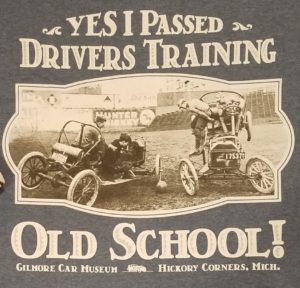By T. R. Shaw Jr.
A while ago
I got into a heated discussion with another community leader about the abysmal
turnout in our recent municipal election.
Not one precinct in our city attained a 10 percent voter turnout on
Election Day.
The
discussion continued on about what’s wrong with our city, government, and the
world in general. I brought up apathy,
our community’s lack of a positive self-image, and well-intended, yet fruitless
attempts at urban improvement. I also
opined about our local and regional economic condition as a factor. I went into a real “Debbie Downer” mode and
someone piped up and said, “You need to stop
being so negative!”
I retorted
with a quick, and condescending response, “I’m
not being negative, I’m being realistic!”
The conversation soon faded and went off into another subject, but the
exchange bothered me.
I thought
about that comeback later where I do most of my deep thinking, in the
shower! As someone who has a tendency to
overthink, I wondered if I was truly being negative, or I was being realistic? I even pondered if it’s a good thing to be
negative?
This might
be a topic for a college philosophy course, but where is the line between
critical thinking, dealing with reality, and downright negativity? Have I crossed the negativity line?
As the media
dwells on the problems of the day; and there are many, are we seeing the glass
as only half full these days? With a
constant stream of 24/7 bad news, have we lost our ability to see the positive
in the great things around us?
True, we
cannot correct problems if we don’t acknowledge and recognize them. I’m reminded that many great people have
risen to challenges, and have been motivated by negativity. Sometimes the best way to motivate is to tell
someone they can’t do something!
One of the
classic stories of negative motivation is the founder of FedEx. In college he came up with the idea for a new
kind of shipping company. He envisioned
a new paradigm. His dissertation and
theory was swiftly and immediately dismissed by a business professor who
claimed, “You’d never be able to compete
with the Post Office!” That
motivated him to pursue it, and FedEx is a household word today.
The point I
pondered is whether or not negative energy can be a catalyst for positive
change. In self-reflection, I’ve felt myself
becoming negative at times and have to really stop and look for the good in
many situations. Is this a side effect
of our world today? Is this normal? Are we seeing the negative first in too many
situations before we stop and consciously look for the positive?
Being
negative is easy, it takes little or no effort.
We have to work hard at being positive most of the time, especially in
today’s world that dwells on the negative.
It’s been my
experience in the military, business, and civic leadership that good leaders
and managers can immediately see “what’s wrong” with something long before
others can. Does this make them negative
people? Not exactly. If they are a good leader, they can see
what’s wrong, but can also see the way to make it right or correct it. Bad leaders will continue to dwell on what’s
wrong.
The exchange
I had earlier, where I was chastised for being negative, caused me to rethink
about how I view problems and start thinking about how to turn them into
positives.
I’m in the
process of writing a book about failure, perseverance, and success entitled “Defy the Immediate.” It’s based on a term I learned in
college. Sometimes I forget my own
lessons and forget to defy the negative emotions which surround us every day. If we don’t look for the positive, we remain
stuck in the negative.
You cannot
jump start a dead battery using only the negative terminal. In today’s world we need to connect to the
positive post as well. There is enough
negativity in the world without adding to it.
Let’s start
looking for the positive in a world gone negative.
Let’s all
start to “Defy the Immediate” in in the negative world around us.
T. R. Shaw Jr. is CEO of Shaw Communication in Battle Creek,
Michigan. He is a retired Navy Officer
and funeral director and serves on many boards and civic organizations. He is nearing completion of his first book,
“Defy the Immediate” a motivational memoir.
Visit his blog, The Reluctant R(L)eader; www.read-mor.blogspot.com





















